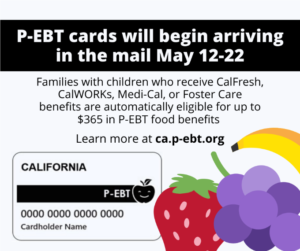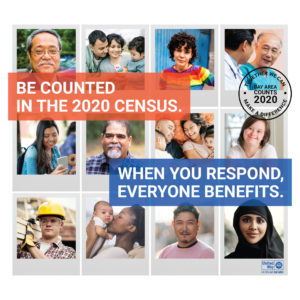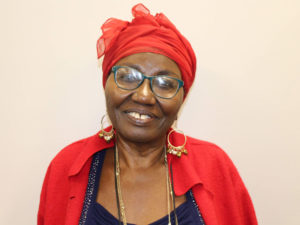Food In Crisis, and Every Day
We’ve all seen the images of cars lined up for miles, waiting to get groceries. We’ve witnessed thousands of our neighbors, standing six feet apart, waiting in lines snaking around city blocks in our neighborhoods to pick up food for their families. We’ve read with disbelief the unemployment numbers, growing by millions with every passing week. We’ve rushed to aid our senior neighbors and relatives, sheltering in place and unable to access resources safely. We know that we are in a moment of historic highs for hunger in our community.
But here at the Food Bank, we have known that hunger has been a crisis for thousands of our fellow San Francisco and Marin residents long before the COVID-19 pandemic. That’s why we not only provide free weekly groceries to people experiencing an acute need for food in the moment, but also have invested in long-term policy advocacy to combat hunger at the systemic level.
CalFresh is a Proven Solution
As a proven positive public health intervention and powerful economic stabilizer, CalFresh has a critical dual role to play in California’s immediate and long-term COVID-19 response. Yet, only 19 percent of eligible older Californians (age 60 or over) receive CalFresh, the lowest participation rate of any state. Here in California, the average monthly benefit for a senior is $158, making it especially worth their while to apply. Yet seniors represent the population with the greatest gap between their eligibility for SNAP and their enrollment in the program, due in large part to the administrative hurdles of applying for the program as a senior.
Legislation for Change
We’re working to change that and make it easier for eligible older Californians to get the benefits to which they’re entitled. We’re co-sponsoring a bill in the CA State Senate (SB 882 – Wiener) that would simplify the CalFresh application for many older adults and people with disabilities, while also making permanent several key changes to increase access to CalFresh during the COVID-19 pandemic. The current application is 18 pages long! When is the last time you had to fill out an 18-page application for anything?
SB 882 would eliminate burdensome, ongoing reporting requirements that cause many households to lose nutrition assistance, even when they remain eligible. SB 882 would also ensure that all applicants and participants can complete the application and recertification interview processes by phone, including submitting the required client signature. This is crucial for older adults with limited mobility and access to reliable transportation.
As the COVID-19 crisis continues to make clear, meeting the nutritional needs of low-income households is an urgent and ongoing need. No one should go hungry in California, and it is our collective responsibility to use all the tools we have to make it easier to access our most powerful anti-hunger tool, CalFresh.





 “It has helped me a lot – you wouldn’t believe it!”
“It has helped me a lot – you wouldn’t believe it!”
Share